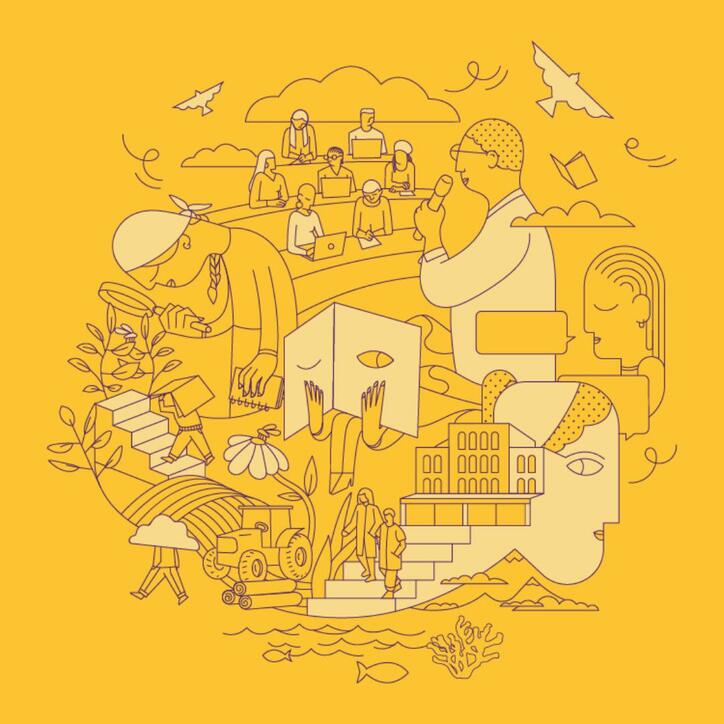Forging long-term academia partnerships based on mutually beneficial relationships, knowledge - and experience-sharing, mobility in both directions, common training pathways that help to enhance the national, regional and international outreach of the African and French higher education institutions, this is the ambition of the programme “Academia Partnerships Africa-France” (PeA).
The PeA is an academic partnerships programme between Africa and France. This programme is financed by the Agence française de développement (AFD) and implemented by the Agence nationale de la recherche (ANR) and Campus France with support from the French Ministry for Europe and Foreign Affairs and the Ministry of Higher Education and Research. It reflects the political will of France to double the number of partnerships between African and French higher education institutions.
Co-create…
The goal of this pilot programme, launched in 2020, is to support:
- A long-term strategic partnership for higher education programmes delivered in Africa: Licence/Bachelor, Master and Doctorate/PhD programmes that are job-oriented, attractive and of high quality.
- The development of an economic sector that is a priority for the African country concerned, and which creates jobs for young graduates.
- Access and academic success for young women and for young people who are the furthest away from higher education.
…Higher education ecosystems…
The PeA promotes networking between African-French academic communities and economic actors and civil society. Together, they reflect, innovate and commit to reaching the Sustainable Development Goals and the goals set out in the African Union’s Agenda 2063. It helps to enhance the national, regional and international outreach of the African and French higher education institutions.
…Serving the Sustainable Development Goals (SDGs)…
The PeA programme contributes to achieving the following SDGs:
- Co-construction of quality and job-oriented training programmes in Africa (SDG 4).
- Access for young Africans to training that leads to decent employment (SDG 8).
- Access to higher education for young African women, and thus to their economic empowerment (SDG 5).
- Partnerships that are effective, inclusive, built on principles and common values, and which set people and the planet as their core concerns (SDG 17).
On the field, the programme allows…
- The creation of new curricula, technical facilities for practical work and research.
- Training and experience-sharing among teacher-researchers.
- Support for innovation and student entrepreneurship, development of partnerships with businesses and professionals.
- Training and experience-sharing among teacher-researchers.
- Support for innovation and student entrepreneurship, development of partnerships with businesses and professionals.
- The opening of distance training are among some of the actions carried out by the partner teams.
… and contribute to:
- Train technicians, executives, entrepreneurs, experts in priority domains.
- Produce scientific knowledge.
- Inform decision-makers.
- Spur innovation.

The projects selected
Train technicians, executives, entrepreneurs, experts in priority domains, produce scientific knowledge, inform decision-makers and spur innovation: higher education institutions have a key role to play in implementing sustainable development pathways, for the benefit of all.

Related contents
Recommended items




















































